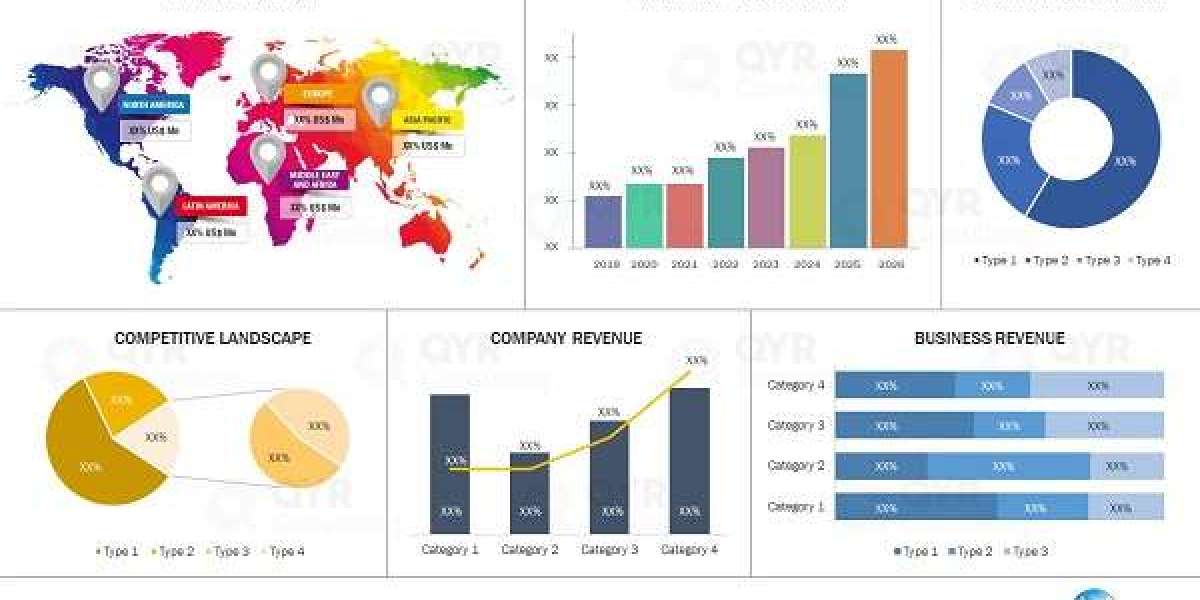The global Ethernet Kitchen Printer market was valued at US$ 360 million in 2024 and is anticipated to reach US$ 514 million by 2031, witnessing a CAGR of 5.3% during the forecast period 2025-2031.
The Ethernet kitchen printer market is expanding steadily worldwide, driven by the increasing adoption of network-connected printing solutions in restaurants, cafés, hotels, and catering businesses. These printers provide reliable, fast, and high-quality order printing by connecting directly to a local area network (LAN) via an Ethernet cable, streamlining operations in busy kitchen environments.
Read Full Research Report: https://www.qyresearch.in/report-details/5680142/Global-Ethernet-Kitchen-Printer-Market-Insights
What is an Ethernet Kitchen Printer?
An Ethernet kitchen printer is a network-enabled thermal or impact printer designed for high-speed, high-volume order printing in commercial kitchens. Unlike USB or Bluetooth printers, Ethernet printers connect directly to a LAN, allowing multiple point-of-sale (POS) systems to send orders to the same printer without delays.
Key advantages include:
- High-speed printing for efficient order processing
- Stable, wired connectivity that avoids wireless interference
- Multiple terminal access from a single printer
- Durable design to withstand heat, moisture, and grease in kitchen environments
Competitive Landscape
The market is moderately fragmented, with manufacturers focusing on durability, connectivity features, and integration with POS software. Key players include:
- Epson America, Inc.
- Star Micronics Co., Ltd.
- Bixolon Co., Ltd.
- Posiflex Technology, Inc.
- TransAct Technologies
- CITIZEN Systems Japan Co., Ltd.
- SNBC (Beijing) Co., Ltd.
These companies are expanding product portfolios with cloud-printing capabilities, compact designs, and enhanced compatibility with popular POS platforms such as Toast, Square, and Lightspeed.
Key Market Drivers
- Growing Restaurant and Foodservice Digitization
Restaurants are increasingly integrating POS systems, kitchen display systems (KDS), and order management software to improve speed and accuracy. Ethernet kitchen printers fit seamlessly into these connected ecosystems, ensuring orders reach the kitchen instantly.
- Rising Demand for Reliability in Busy Kitchens
In high-volume kitchens, a missed or delayed order can disrupt operations. Ethernet printers offer stable wired connections, eliminating issues like Wi-Fi dropouts and ensuring uninterrupted printing.
- Expansion of Quick Service Restaurants (QSRs) and Cloud Kitchens
The global rise of QSRs, food delivery services, and ghost kitchens requires efficient order communication systems, and Ethernet kitchen printers are a cost-effective and scalable solution.
- Advancements in Printing Technology
Manufacturers are introducing energy-efficient, noise-reduced, and high-resolution Ethernet printers with features like automatic paper cutting, multi-language support, and integration with cloud-based ordering platforms.
Market Segmentation
The Ethernet kitchen printer market can be segmented by:
- Printer Type: Thermal printers, impact/dot matrix printers
- End-user: Quick service restaurants, full-service restaurants, cafés, hotels, catering services
- Distribution Channel: Direct sales, retail distributors, online platforms
Thermal printers are gaining popularity due to their speed and low maintenance, while impact printers remain preferred in kitchens with high heat and humidity due to their durability.
Regional Insights
- North America leads the market, with widespread adoption of POS-integrated kitchen printing solutions in the U.S. and Canada.
- Europe follows closely, driven by advanced restaurant technology adoption in the UK, Germany, and France.
- Asia-Pacific is the fastest-growing region, fueled by the rapid expansion of QSR chains, e-commerce-driven food delivery, and modernization of restaurants in China, India, and Southeast Asia.
Challenges and Opportunities
Challenges:
- High competition from wireless kitchen printers in certain segments
- Upfront installation costs for wired LAN setups
- Need for integration with diverse POS systems
Opportunities:
- Integration with IoT-enabled kitchen management systems
- Demand from multi-location restaurants needing centralized printing
- Growth in emerging markets where digitization of foodservice is accelerating
Future Outlook
The Ethernet kitchen printer market is expected to grow steadily over the next decade as restaurants and hospitality businesses increasingly rely on network-based solutions for seamless order processing.
Future developments will likely focus on hybrid connectivity (Ethernet + Wi-Fi), cloud-order printing, and smart diagnostics to minimize downtime. With its reliability, speed, and compatibility with modern POS ecosystems, the Ethernet kitchen printer will remain a crucial tool for efficient kitchen operations in the evolving foodservice industry.
About Us:
QY Research established in 2007, focus on custom research, management consulting, IPO consulting, industry chain research, data base and seminar services. The company owned a large basic data base (such as National Bureau of statistics database, Customs import and export database, Industry Association Database etc), expert's resources (included energy automotive chemical medical ICT consumer goods etc.
Contact Us:
QY Research, INC.
315 Work Avenue, Raheja Woods,
Survey No. 222/1, Plot No. 25, 6th Floor,
Kayani Nagar, Yervada, Pune 411006, Maharashtra
Tel: +91-8669986909
Emails - [email protected]
Web - https://www.qyresearch.in



